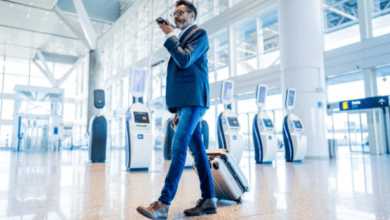The Benefits of Mindful and Slow Travel

Introduction
In a world where speed and efficiency dominate, the concept of mindful and slow travel offers a refreshing alternative. Instead of rushing through destinations to check items off a bucket list, mindful and slow travel emphasizes a deeper connection with the places we visit, the cultures we encounter, and even ourselves. It is about savoring each moment, appreciating the journey as much as the destination, and creating meaningful memories that last a lifetime. Embracing this approach to travel offers numerous benefits, both for the traveler and the world around them.
What is Mindful and Slow Travel?
Mindful travel begins with the intention to be fully present in each experience. By focusing on the here and now, travelers can cultivate a sense of awareness that transforms their journeys into enriching experiences. This approach allows individuals to truly engage with their surroundings, noticing details they might otherwise overlook. A simple walk through a local market becomes an opportunity to observe vibrant colors, inhale the aroma of fresh produce, and converse with vendors. These moments of mindfulness foster a deeper appreciation for the culture and environment, enhancing the overall travel experience.
Slow travel complements mindfulness by encouraging travelers to take their time and immerse themselves fully in a destination. Instead of rushing through a packed itinerary, slow travelers prioritize quality over quantity, spending extended periods in fewer locations. This approach allows for a richer and more authentic connection with a place. By staying longer, travelers can explore hidden gems, interact with locals, and gain insights into daily life that are often missed on whirlwind tours.
Mental Well-Being and Mindfulness
One of the significant benefits of mindful and slow travel is its positive impact on mental well-being. The pace of modern life often leaves people feeling stressed and disconnected. Mindful and slow travel provides a chance to step back, recharge, and reconnect with oneself. By engaging in activities such as meditative walks, journaling, or simply observing nature, travelers can reduce stress and cultivate a sense of inner peace. This form of travel also encourages gratitude, as individuals become more attuned to the beauty and wonder of the world around them.
Sustainability and Environmental Impact
Mindful and slow travel also nurtures a deeper appreciation for sustainability. Rushed tourism often leads to over-tourism, which can strain local communities and ecosystems. In contrast, slow travelers tend to have a smaller environmental footprint. Staying in one place for an extended period reduces the need for frequent transportation, which helps lower carbon emissions. Additionally, mindful travelers often choose accommodations and activities that support local businesses and promote eco-friendly practices. This approach benefits the environment and contributes to the well-being of the communities they visit.
Personal Growth Through Travel
Another advantage of this travel style is the opportunity for personal growth. Slow and mindful travel fosters curiosity and open-mindedness, as it encourages exploration and interaction with diverse cultures. Travelers often return home with a broader perspective, greater empathy, and new skills or knowledge acquired during their journeys. Whether learning a new language, cooking a traditional dish, or mastering a local craft, these experiences leave a lasting impact and create a sense of accomplishment.
Strengthening Relationships
Mindful and slow travel also strengthens relationships. For those traveling with family or friends, the unhurried pace allows for meaningful connections and shared experiences. Without the distractions of a busy schedule, travelers can focus on enjoying each other’s company and building lasting memories. Solo travelers, on the other hand, find that mindfulness enhances self-reflection and self-discovery, fostering a deeper connection with their inner selves.
Cost-Effectiveness and Flexibility
A practical benefit of slow travel is its cost-effectiveness. While it may seem counterintuitive, staying in one place for an extended period often reduces travel expenses. Long-term stays can lead to discounted accommodations, fewer transportation costs, and more opportunities to cook meals instead of dining out. This approach allows travelers to allocate their budget to meaningful experiences rather than spending on constant movement. The flexibility of slow travel is another appealing aspect. Without the pressure of a packed schedule, travelers can adapt their plans based on their interests, energy levels, or unexpected opportunities.
Cultural Respect and Understanding
Mindful and slow travel also deepens the sense of cultural respect and understanding. By taking the time to learn about local customs, traditions, and history, travelers can engage with communities more thoughtfully and respectfully. This approach fosters meaningful interactions and helps bridge cultural divides, creating a sense of connection that transcends geographical boundaries.
How to Embrace Mindful and Slow Travel
Incorporating mindfulness into travel does not require drastic changes. It can be as simple as pausing to savor a meal, engaging in a heartfelt conversation, or watching a sunset without distractions. These small acts of mindfulness enrich the travel experience and leave a lasting impression, transforming ordinary moments into cherished memories. For those seeking to embrace mindful and slow travel, planning is key. Research destinations that align with your values, prioritize sustainability, and offer opportunities for immersive experiences. Choose accommodations that reflect the local culture, such as boutique hotels or homestays. Be open to spontaneity while allowing room for downtime in your itinerary. Above all, approach each journey with curiosity, gratitude, and a willingness to learn.
Conclusion
In a fast-paced world, mindful and slow travel serves as a reminder to savor life’s simple pleasures and embrace the journey. By focusing on presence, connection, and sustainability, travelers can transform their adventures into profound experiences that enrich their lives and leave a positive impact on the places they visit. Whether it’s wandering through a quiet village, connecting with locals, or simply appreciating the moment, mindful and slow travel offers a path to discovering the world—and ourselves—in the most meaningful way.




